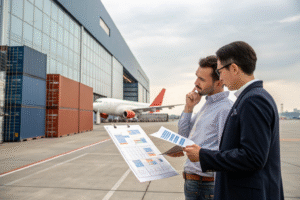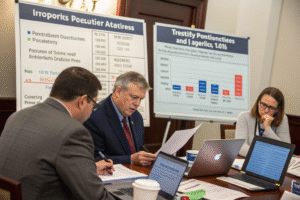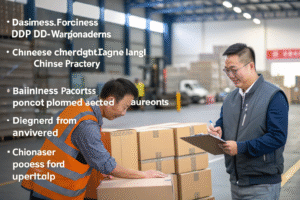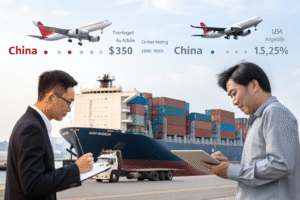Losing cargo during international shipping is every importer’s nightmare. Whether it’s misrouted at a transshipment hub or never loaded onto the vessel, missing goods mean lost revenue, missed deadlines, and strained customer relationships.
When cargo goes missing, professional freight forwarders step in to trace, report, coordinate recovery, and process insurance—minimizing disruption and protecting your business interests.
With the right freight partner, you’re never alone in the chaos. Instead, you have a logistics ally equipped with tools, contacts, and procedures to quickly respond and resolve cargo loss.
What causes cargo to get lost in transit?
Cargo can go missing for various reasons, ranging from documentation errors to port mishandling.
Most lost cargo incidents stem from human error, carrier mix-ups, theft, or poor tracking infrastructure.
Freight forwarders are often the first to spot early warning signs when a shipment doesn’t move as expected.

What are the most common reasons for lost cargo?
Lost cargo may be the result of incorrect container numbers, mislabeling, port misplacement at busy terminals, or scanning failures. In some cases, it’s stolen during inland transit—especially for high-value goods like electronics or designer apparel.
Weather delays or diverted vessels can also cause containers to be offloaded at unintended ports, then misplaced. Without proper oversight, cargo may be rerouted without notification, causing confusion and delay.
How does poor tracking contribute to cargo loss?
Not all carriers provide real-time updates. Some systems only log container activity at major checkpoints. A delay in updating container status might mean cargo is missing for days before anyone realizes.
That’s why forwarders now use digital tracking platforms to monitor routes in real-time. If something appears off—like no update after port departure—they immediately investigate.
What are the first steps a forwarder takes when cargo goes missing?
A professional freight forwarder responds swiftly when cargo cannot be located.
They launch a trace protocol, notify the carrier, and contact all handling points in the supply chain.
Time is critical in these situations. The faster the action, the better the recovery chances.

How is a formal cargo trace launched?
The forwarder gathers all documentation—bill of lading, container number, terminal data, trucking receipts—and initiates a formal trace through the shipping line or airline.
They also check EDI logs and port community systems for scanning anomalies. If inland trucking was involved, they verify GPS logs or weighbridge data.
Clients are kept updated throughout the process, receiving status emails and escalation timelines.
What role does the freight forwarder’s network play?
Forwarders often have direct contacts inside ports, bonded warehouses, and carrier operations teams. These relationships speed up trace efforts. For instance, instead of filing a ticket, they may directly call the supervisor at a specific terminal where the cargo was last seen.
This level of access is something that individual importers or factories don’t have—and it makes a big difference in recovery time.
How do forwarders help with cargo recovery or compensation?
When cargo is unrecoverable, forwarders guide you through the claim process.
They assist in filing insurance, verifying loss value, and documenting proof—so clients can receive fair compensation quickly.
Forwarders don’t just identify where things went wrong—they help you bounce back from it.

How is a lost cargo insurance claim processed?
If cargo was insured—either by the shipper, buyer, or the forwarder’s policy—the forwarder helps collect the required documentation. This includes commercial invoices, packing lists, and incident reports from the port or carrier.
They also verify whether the terms were CIF, FOB, or DDP, which affects claim responsibility. Once documentation is in, they submit to the insurer or underwriter (e.g. Lloyd’s of London) for settlement.
What if the shipment wasn’t insured?
Many forwarders offer freight insurance options as an add-on. If a shipment was not covered, they may still help the client seek partial reimbursement from the carrier based on carrier liability.
However, carrier compensation is often minimal and capped by weight. This highlights the importance of adding cargo insurance when dealing with high-value goods.
What measures help prevent cargo loss in the future?
The best forwarders don’t just solve problems—they prevent them from recurring.
Using smart tracking tools, verified partners, and proactive planning, forwarders reduce cargo loss risks dramatically.
At GeeseCargo, we believe in strong prevention protocols—not just reaction plans.

What technology helps prevent future incidents?
Digital platforms like FourKites and GPS integration for truckers allow forwarders to monitor every shipment step. Some even add RFID tags for high-risk cargo so that containers can be traced within warehouses.
Cloud-based document management also reduces errors in shipping labels or manifests, which are often the source of mix-ups.
How does communication with suppliers and carriers prevent loss?
Forwarders like us coordinate directly with factories and customs brokers. We ensure proper labeling, verified seal numbers, and synchronized handovers.
We also conduct pre-loading audits and verify whether the shipping instructions match actual goods. These checkpoints are essential in preventing containers from being misidentified or loaded onto the wrong vessel.
Conclusion
Cargo loss can disrupt any supply chain—but with the right freight forwarder, recovery becomes manageable. Professional forwarders don’t just look for missing shipments. They act fast, file claims, contact the right people, and help you prevent it from happening again. With GeeseCargo, you gain a trusted logistics partner who won’t let your cargo—or your trust—disappear.









